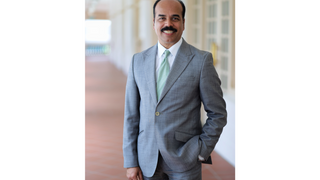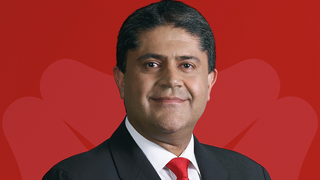
Shifting geopolitical and trade digitisation on payment agenda: treasury conference
Bankers spoke to CT about key trends observed across Apac treasury teams, at Bank of America’s Treasury Leaders Summit in Singapore.

Geopolitical turmoil has vastly reshaped treasury priorities across Asia Pacific (Apac) as supply chains shift, and uncertainty prevails. Meanwhile, demand is growing for technologies that push digitisation and ensure flexibility, according to senior bankers attending a conference in Singapore.
Tariff policies by US president Donald Trump’s administration were identified as one of the biggest geopolitical risks, ever since so-called ‘Liberation Day’ on April 2. This has further accelerated a shift of supply chains across Asia, since the deterioration of US-China relationships.
Certain negotiations around tariffs are still ongoing, and a new global landscape is seemingly taking its shape, as shown from a closer connection across Asian superpowers, including mainland China and India, together with Russia.
Winnie Chen, head of global payment solutions, Apac, at Bank of America (BofA), told CorporateTreasurer some other emerging trends in the payment space, including a rising number of shared service centres (SSC) in countries such as Malaysia, the Philippines and India, which have helped create new payment corridors.
She also pointed to the supply chain shift and a "wait and see" approach to new investments amid tariff uncertainty.
Real-time payments, AI
Given the ever-changing dynamics, treasurers are increasingly looking at specific functions that could help them weather the growing uncertainty.
Discussing real-time payments, Chen said: "Digital payments adoption in Apac continues to grow, driven by the rollout of real-time payment systems in key markets. However, cross-border real-time payments require stronger collaboration among regulators, financial institutions, and payment service providers to achieve interoperability and scale."
She said that "while many clients are exploring real-time payments, such payments tend to be more critical for business-to-consumer (B2C) businesses than for business-to-business (B2B) operations."
Chen added that treasurers were also looking at working capital optimisation, liquidity management, cybersecurity, and supply chain resiliency.
Meanwhile, new technology, such as artificial intelligence (AI) and machine learning (ML), is being used to deliver services such as data analytics, R&D, cash forecasting and matching payments with remittance data.
Olivier Anceau, head of specialised products sales, Apac, at BofA, added that amid the uncertain environment: “Treasury teams are often stretched for funding and resources, prompting treasurers to prioritise essential liquidity, risk and compliance functions."
Trade finance digitisation
Anceau told CT, in a separate interview, that trade finance digitisation has emerged as one of the most asked about topics by treasurers.
Trade finance processes have been traditionally paper-heavy, in part due to regulations in most markets that require hard copies of documents, that include bills of lading.
“Digitisation of treasury services has shifted from being bank-led to client-driven. The Covid-19 pandemic and new technologies were key catalysts, accelerating the adoption of digital cash management solutions," Anceau said.
Considered a big step forward in this space, the UK has started to recognise electronic bills of lading (eBL) as the Electronic Trade Documents Act (ETDA) went into effect in 2023. It has effectively made into laws that e-versions of such documents are equally functional as traditional paper versions, and has implications across English Law jurisdictions.
In Singapore, a major trade hub in Asia, authorities have also enabled multiple eBL initiatives with trade partners such as Bharain, Thailand and India.
Anceau said that while "earlier digitisation efforts failed due to a one-size-fits-all approach, which couldn’t accommodate the fragmented and complex nature of global trade", the process of trade digitisation is now "in play".
"Technological advancements, better legal frameworks and interoperability protocols are enabling the development of integrated platforms that connect multiple stakeholders across the trade ecosystem," Anceau added.
The interviews took place on the sideline of BofA’s Treasury Leaders Summit in Singapore, on September 3.
Sign in to read on!
Registered users get 2 free articles in 30 days.
Subscribers have full unlimited access to CorporateTreasurer.
Not signed up? New users get 2 free articles per month, plus a 7-day unlimited free trial.
If you are a treasurer, CFO or senior professional at a corporate or SME, please register for free VIP access here.
Questions?
See here for more information on licences and prices, or contact [email protected].
© Haymarket Media Limited. All rights reserved.
Top news, insights and analysis every Tuesday & Thursday
Free registration gives you access to our email newsletters
for unlimited access to all articles, newsletters


